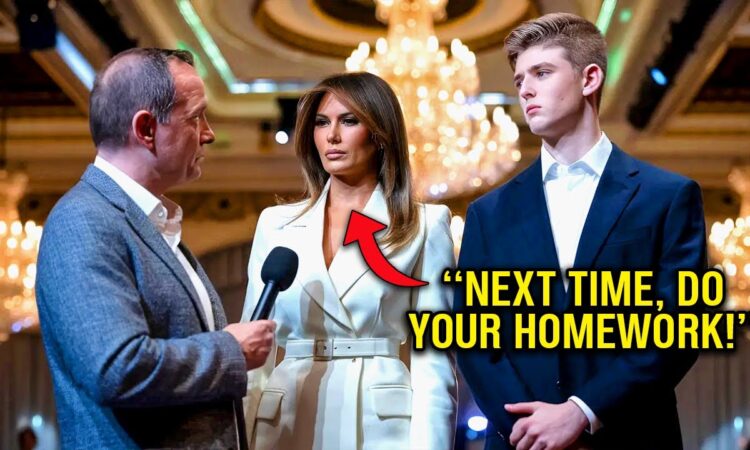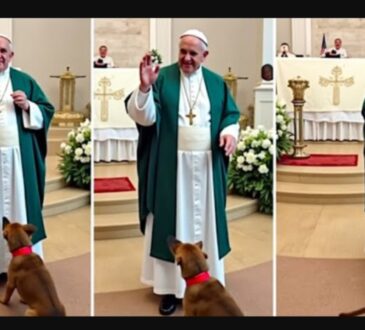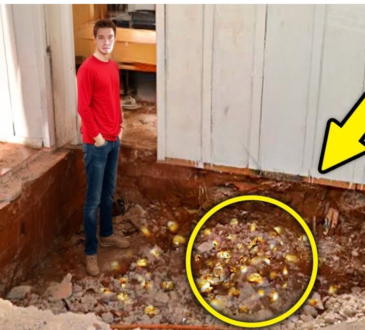
A journalist pushed too far, but Barron Trump’s poised response turned the tables in the most surprising way.
The air in Washington, D.C., was thick with anticipation. Inside the expansive hall of the Kennedy Center, cameras flashed, and voices hummed in an excited symphony. It was a public event hosted by a renowned arts foundation, with guests ranging from political figures to A-list celebrities. The atmosphere was formal but electric—a stage perfectly set for unexpected drama.
Among the crowd, Melania Trump stood out, not just for her elegance but for her quiet presence that seemed to carry the weight of years in the public eye. Dressed in a tailored white suit, she moved gracefully through the room, offering polite smiles and brief conversations. For Melania, such appearances were nothing new, yet tonight felt different—tenser, perhaps. Eyes followed her every move, and behind those eyes, judgments brewed.
In the far corner, an ambitious journalist known for their bold and often polarizing approach spotted her. This wasn’t just any journalist; they had a reputation for turning moments of vulnerability into headline-grabbing spectacles, and tonight they had their sights set on Melania. With their questions prepared, microphone in hand, and a cameraman trailing closely, they began weaving through the crowd, determined to corner their target.
What neither Melania nor anyone else in the room anticipated was the role her youngest son, Barron Trump, would soon play in what was about to unfold. The night was just getting started, but no one could have predicted the storm brewing in the seemingly calm room.
The Kennedy Center sparkled under the glow of its chandeliers, reflecting the grandeur of the evening. Guests mingled in clusters, their laughter and chatter echoing softly against the high ceilings. Servers moved effortlessly through the room, balancing trays of champagne flutes and hors d’oeuvres, adding a touch of sophistication to the already polished atmosphere.
Melania Trump, as always, commanded attention without trying. She carried herself with a poise that turned heads, but it wasn’t her outfit or jewelry that captured people’s focus—it was her composure. With each handshake and greeting, she exuded a calm confidence, a stark contrast to the buzzing energy of the crowd.
Not far from her stood Barron Trump, taller than many adults in the room and visibly growing into his own. At just 18, he carried himself with a maturity that often surprised those around him. While his mother engaged in conversations, Barron stayed close, scanning the room like a protective shadow. He wasn’t one to seek attention, but anyone who noticed him couldn’t help but sense an understated presence.
Across the room, the journalist, known for their sharp critiques and on-the-spot interrogations, saw their opportunity. They had been waiting for a chance to challenge someone of Melania’s stature, and this was their moment. Gripping their microphone tightly, they nodded to their cameraman to follow as they inched closer to their target. With every step, their determination grew.
The energy in the room remained lively, but an undercurrent of tension was beginning to ripple through. As the journalist moved in, Melania was speaking with a small group of event organizers. Then, the journalist made their move. With the microphone poised and a camera rolling, they approached her as if they were just another guest looking to engage in conversation. But their intentions became clear the moment they opened their mouth.
“Mrs. Trump,” they began, their voice cutting through the ambient noise, “your time as First Lady was marked by controversy. Some critics say you stayed silent on issues that mattered most to the American people. Do you believe you fulfilled your role?”
The question, thinly veiled as polite, had barbs hidden within it. Conversations in the room faltered as people began to tune in, their attention drawn by the journalist’s sudden audacity. Melania paused, her expression calm but guarded. She was no stranger to public scrutiny, and her years under the spotlight had taught her how to maintain composure. Still, the pointed question demanded a response.
The journalist wasn’t about to let the moment go without pushing further. “You’ve often been criticized for not speaking out against your husband’s policies,” they pressed. “Do you feel that your silence contributed to the division in this country?”
The camera zoomed in, capturing every nuance of her reaction. The journalist’s tone wasn’t loud, but it was firm—designed to put her on the defensive. A murmur began to spread through the room as attendees exchanged uneasy glances. Some whispered; others craned their necks to get a better view of the unfolding scene.
Melania opened her mouth to respond, but before she could say a word, a voice cut through the tension like a knife.
“Is this really the right time or place for that kind of question?”
It was Barron. Standing tall, his tone calm yet assertive, he stepped forward, placing himself between his mother and the journalist. The room went still as all eyes turned to him.
The journalist hesitated for a moment, but their expression suggested they weren’t backing down just yet. This was far from over.
The journalist turned to face Barron, momentarily caught off guard. It was clear they hadn’t expected the young adult to step in, let alone with such quiet authority. Barron stood firm, his gaze steady but respectful. For someone his age, he exuded an unusual composure, and his words carried a weight that silenced the whispers around the room.
“Excuse me,” he continued, his voice calm but unmistakably firm, “my mother has spent years being judged, criticized, and misunderstood. Tonight, she’s here to support a cause, not to defend herself against loaded questions.”




